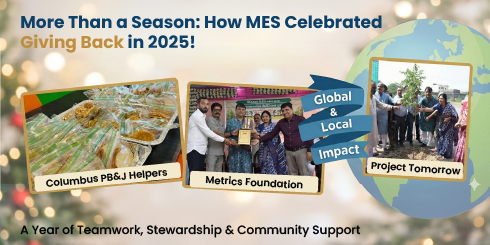Stop Sourcing. Start Partnering: How Engineering Smarter Solutions Saves Time and Money – MES
At MES, we’re not just a vendor—we’re a solutions partner. Our value lies in delivering engineering-driven support across the entire product lifecycle, from early-stage design consultation to manufacturability analysis and supplier coordination. Whether it’s converting complex weldments into cost-effective castings, optimizing part geometry for performance, or streamlining production through supply chain integration, MES helps customers solve critical challenges before they reach the shop floor. Companies like Eaton and Siemens rely on MES not just for what we deliver, but for how we think—proactively, collaboratively, and with a clear focus on smarter, more efficient manufacturing outcomes.
But even the most reliable systems benefit from refinement—and from partners that think beyond the quote.
A Partnership Built on Engineering Excellence
What began as a sourcing request for a complex aluminum bronze handle assembly has evolved into a strategic engineering partnership between Eaton and MES Inc. MES is not simply a supplier, but a solutions provider that brings deep value through advanced engineering, manufacturability analysis, and supply chain collaboration. Many customers today view MES as more than a manufacturer—they view MES as a problem-solver and innovation partner.
A key aspect of this value lies in MES’s ability to drive manufacturability improvements not just internally but also by actively engaging with the customer’s broader supply base. By collaborating with external stakeholders—such as toolmakers, material suppliers, and finishers—MES helps ensure that upstream and downstream processes align for optimal production outcomes.
Through design-for-manufacturability improvements, precision casting, and turnkey assembly capabilities, MES aligns closely with Eaton’s long-term goals for innovation and operational efficiency. A key differentiator lies in MES’s internal engineering resources, including on-staff application engineers who evaluate customer designs and provide improvement options that are both feasible and value-driven.
Engineering Improvements in Action: The Nova NX Recloser Handle
Eaton’s initial collaboration with MES focused on producing the handle for its Nova NX STS Recloser—a component exposed to harsh environments and critical for manual operation. MES not only delivered on the functional and quality requirements, but also proposed a fundamental redesign.
The original component was a stainless steel shaft cast within an aluminum bronze handle, requiring five steps: bar stock purchase, turning, casting, machining, and painting. MES engineers, recognizing potential issues with dissimilar metal casting and manufacturing complexity, proposed a single-piece 416 stainless steel casting instead.
This proposal significantly streamlined production, minimized potential failure points, and maintained corrosion resistance and mechanical performance. In response, Eaton engineering asked MES to integrate an assembly hole into the shaft, which MES confirmed as feasible and included in updated samples and prints. The success of this change prompted Eaton to apply the same design improvement to a second handle.
Scaling Impact Across Projects and Customers
The MES model of engineering collaboration has resonated well beyond the Eaton partnership. For instance:
Siemens Castings: When Siemens approached MES with parts designed for permanent mold casting, MES and its supplier proposed a shift to shell molding. This alternative maintained required tolerances while lowering costs—demonstrating how process re-evaluation can optimize outcomes.
Eaton Housing Redesign: Eaton engaged MES to quote a housing assembled from four machined and welded panels. MES identified the potential to convert this into a single-piece casting—eliminating extensive welding, reducing production time, and enhancing reliability. While still under evaluation, Eaton has responded positively to the manufacturability and cost-saving potential.
These examples underscore MES’s ability to function as an engineering extension of its customers—providing feedback on manufacturability, material choices, and process optimization, often in collaboration with the customer’s suppliers. This holistic, systems-level approach ensures every design decision takes into account the realities of manufacturing, assembly, and cost containment.
In fact, many customers come to MES seeking more than manufacturing—they are looking for early-stage design guidance and manufacturability validation. Common scenarios include:
- Customers with current weldment designs seeking to convert them into castings or forgings to improve efficiency and lower costs.
- Customers with new designs who want to ensure they are manufacturable from the start to avoid costly iterations.
- Customers with existing or conceptual designs that require input on which process—casting, forging, or another method—is most feasible or cost-effective.
Across these scenarios, MES is seen not just as a vendor, but as a source of technical clarity and innovation. Customers view MES as the expert—equipped with the experience, analytical tools, and supply chain network to guide critical design decisions that impact performance, cost, and lead time. Whether the goal is cost reduction, process simplification, or reliability improvement, MES delivers clarity through engineering insight.
Deepening Integration Through Trusted Collaboration
Today, MES not only casts and machines components for the Nova NX STS, it also manages complete assembly and logistics, providing Eaton with an end-to-end, streamlined supply chain solution. This collaborative momentum has extended to other product lines, such as head castings, further solidifying the MES-Eaton partnership.
MES has also served in critical co-development roles on projects requiring early and ongoing collaboration, such as the Rotor/Stator for Lordstown Motors, where design and process decisions were jointly developed between MES, the customer, and MES’s supply base. This level of integration illustrates MES’s capacity to align technical, logistical, and manufacturing strategies across multi-party ecosystems.
A Reputation for Forward-Thinking Solutions
At the heart of every MES engagement is a commitment to forward-thinking engineering. Customers view MES as a partner capable of delivering not only what is requested, but what is truly needed—solutions that improve manufacturability, performance, and cost efficiency from the ground up.
As MES Sales and Application Engineering Manager Brad Layne puts it, “When we bring ideas to the table, they’re rooted in engineering logic and supply chain know-how. That’s why our partners listen—and that’s how innovation happens.”




